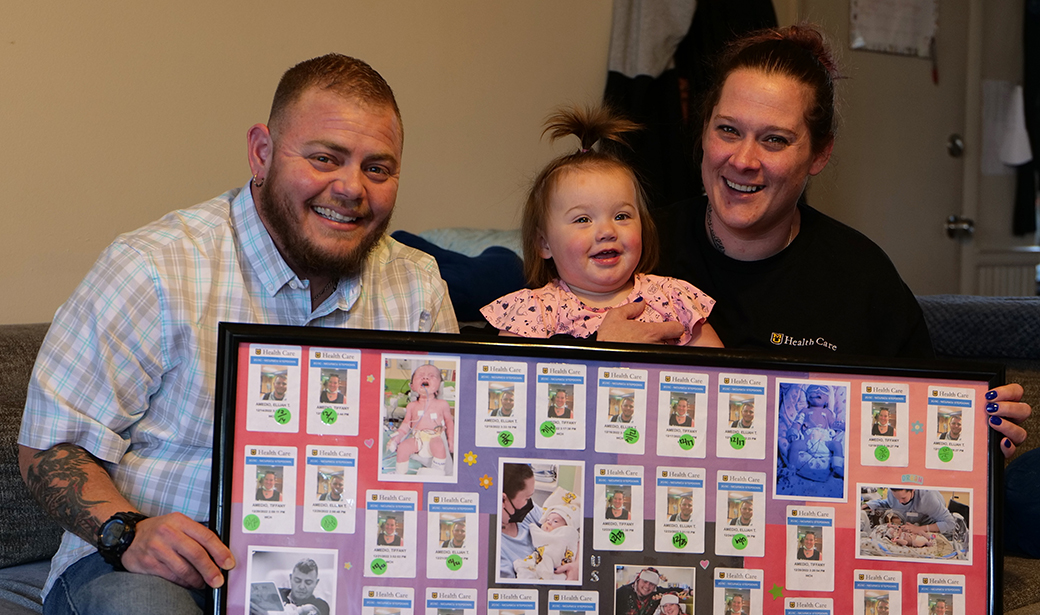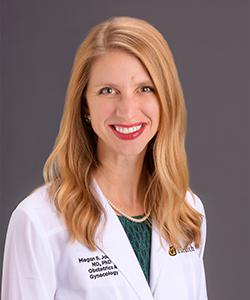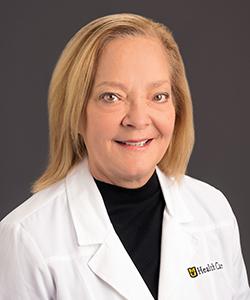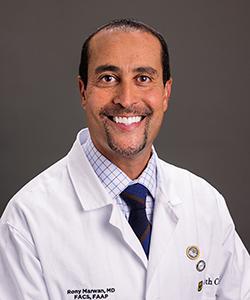As far as Kora Jean Amedio is concerned, cheese is its own food group. The one-year-old didn't get her love of cheese from her mom, Tiffany, taking after her dad Elijah in that way.
Tiffany strongly dislikes cheese, but she had such a craving for it during pregnancy she ate 10 cheeseburgers in one week and hasn’t eaten one since her daughter was born. Instead, Kora Jean inherited mom’s sassy, headstrong, independent personality.
“She’s stubborn, determined and just goofy,” Tiffany said. “A duplicate of me. She laughs at everything and has this smile that makes me cry sometimes because it’s so cute. She changed me. She changed my whole life.”
When it’s time to eat, Kora Jean will go to the fridge in search of cheddar, provolone (Eli’s go-to) or cottage cheese. Unlike many kids her age, she wants to drink water and is fascinated by glasses and plastic bottles.
But in late 2022, before she was born, Tiffany’s doctors at MU Health Care noticed a rare medical condition in her baby that would impact Kora Jean’s ability to digest cheese, water or any foods.
Because Tiffany has diabetes, her OB, Megan Johnson, MD, referred her to MU Health Care’s Maternal Fetal Medicine providers for additional monitoring during her pregnancy. The first seven months of her pregnancy went smoothly, but during a routine ultrasound, Tiffany’s sonographer and her maternal fetal medicine doctor, Jean Goodman, MD, saw a clear sign of a pregnancy complication.
Ultrasounds show fluid as black and bone as white. During pregnancy, a baby’s stomach will normally appear as one black bubble.
“With Tiffany and Kora Jean, we saw a double bubble,” Goodman said. “And what that tells us is very simple, that there’s a block between the baby’s stomach and intestines called duodenal atresia.”
Duodenal atresia is a rare birth defect that appears once in approximately 5,000 pregnancies. But it is incredibly rare for a parent and child to both have the condition, something that made the Amedios grateful for the care they received.
“When I found out she had it, I broke down and cried. I thought I did something wrong,” Tiffany said. “Her diagnosis set that lightbulb off in my head, but I realized even though I had stomach issues as a kid and some other health issues, I’m mostly fine now, which gave me hope for her.”
Prenatal care at MU Health Care is a team effort, with experts in maternal and fetal care including doctors, nurses, sonographers and other specialists trained to help women through routine and complex pregnancies. That expert care from everyone in the Maternal Fetal Care Center helped make sure Kora Jean’s condition was caught early.
“We knew that Tiffany was born with this condition, and although there are only a handful of cases in medical literature about this defect being inherited, it was something we recognized could occur,” Goodman said. “It could easily have been missed, but this is an example of the level of expertise and care that we offer at MU Health Care.”
Goodman took Kora Jean’s diagnosis back to the rest of the team at the Maternal Fetal Care Center, which includes pediatric surgeon Rony Marwan, MD. Marwan made sure Tiffany and Eli understood the surgery, drawing everything out on a piece of paper that Tiffany keeps in a memory box with the reels of Kora Jean’s ultrasounds.
Together, they created a plan for Tiffany and Kora Jean, coordinating and centralizing all of mom’s appointments before and after delivery to take as much stress as possible off her shoulders. Goodman also walked the Amedios through every step of pregnancy, birth, NICU stay and follow-up care.
“Here, parents come to one place, we review the ultrasounds with them, we review the MRI with them, and then we have all the experts sitting at the table talking to the mom before the baby is born,” Marwan said. “That is a very different level of sophistication, so to speak, and it makes the parents comfortable with the plan because they know it before the baby is born.”
One key piece of stress relief for Tiffany was the surgery itself. Hers was done using an open incision, which means she has a 13-inch scar across her belly. Marwan promised her Kora Jean’s scars would be tiny in comparison.
“Dr. Marwan described Kora’s surgery as a crochet technique, and she has three itty bitty incisions, one of which you can’t even see because it’s in the crease of her belly button,” Tiffany said. “I hope that means she won’t have the same self-esteem issues I did because of my scar. Now, it’ll be like a little game I can play with her, ‘Where’s your scar?’ His confidence and patience made everything seem easy.”
There were still complications in store — Tiffany suffered a spontaneous hip break before giving birth and was induced after an epidural — but she was in the hospital, surrounded by expert doctors and nurses who stepped in at a moment’s notice.
After she was born, Marwan made those tiny incisions in Kora Jean and bypassed the blockage, connecting a different part of the duodenum, or upper intestine, to the bottom of her stomach. A few days after surgery, her care team used a contrast injection to make sure there were no more leaks or blockages in her digestive tract.
“Seeing these babies do well is the best thing that we can ever ask for,” Marwan said. “We don't see ourselves as surgeons at that point in time. We see ourselves as friends of the family because these bonds were created a while back. There is nothing better than seeing a kid do well that you knew had a problem before you met.”
During Kora Jean’s NICU stay, both her parents got sick and couldn’t visit her for 10 days. Marwan made sure to call Tiffany and Eli daily to update them on Kora Jean’s condition, her food input and output, and answer their questions.
“They treated me like family,” Tiffany said. “They treated my daughter, even when she wasn't here yet, as if she were a person. And they made me know, not just feel, they made me know that she was going to be okay.”
These days, Kora Jean is pals with Marwan, playing peekaboo with him during follow-ups. At home, she watches “Jeopardy” and “Wheel of Fortune” reruns with mom and dad and plays with whatever she can get her hands on, from dolls to trucks to water bottles.
“She is one of a kind,” Tiffany said. “There is no one else like my daughter, and she knows it, too. And knowing that she's okay and that she's going to be just fine, that's everything.”






